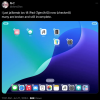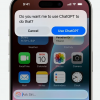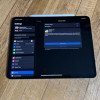iPhone hackers go too far, get shut down
I was all set to give this week's column over to a new register-direct implementation of a JavaScript interpreter that's many times faster than all currently available implementations. It's not exactly growing hair on a billiard ball, but a nitro-boosted JavaScript will put a shine on AJAX and keep my most beloved language on track to becoming the gold standard for dynamic languages.
Apple decided to nix that story in favour of yet another iPhone piece, this one to celebrate the short life of a project that opened the iPhone and the iPod Touch Unix to developers. The keepers of the project are responsible for its demise, because they made it impossible for Apple to discern between innocent developers looking to create an unencumbered open source community on Apple mobile hardware, and those who want to force Apple to break its exclusivity deal with AT&T.
Up until a couple of days ago, it was possible to develop software for iPhone 2.0 devices (the iPhone, iPhone 3G, and iPod Touch running 2.0 firmware) without the encumbrances of Apple's onerous developer contracts and code-signing requirements. A very tidy iPhone 2.0 app called Cydia set up an App Store equivalent for open source developers and those interested in sampling their wares. With Cydia, there's no credit card required, no tracking of who had downloaded what, and no restrictions on the capabilities of applications.









































































